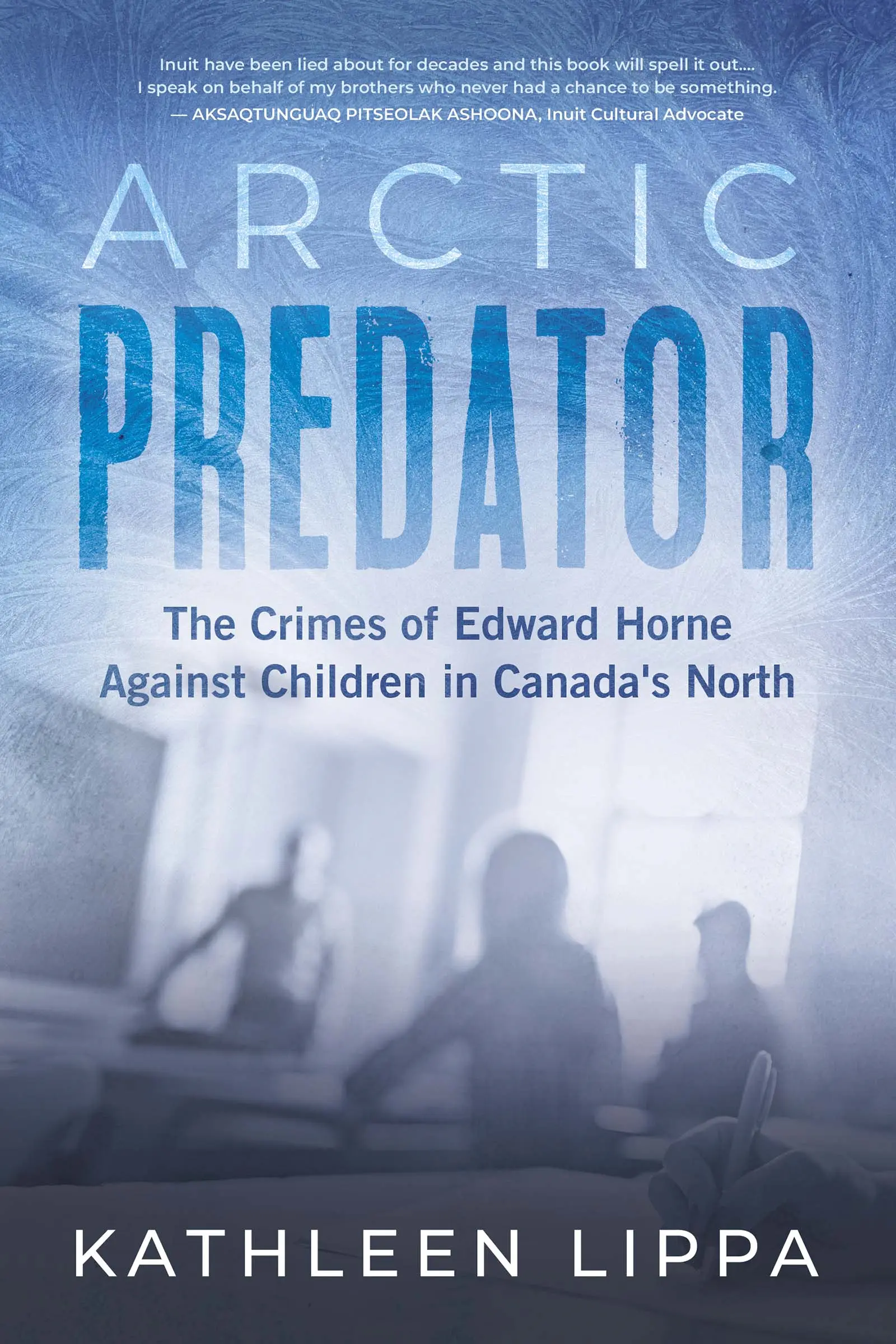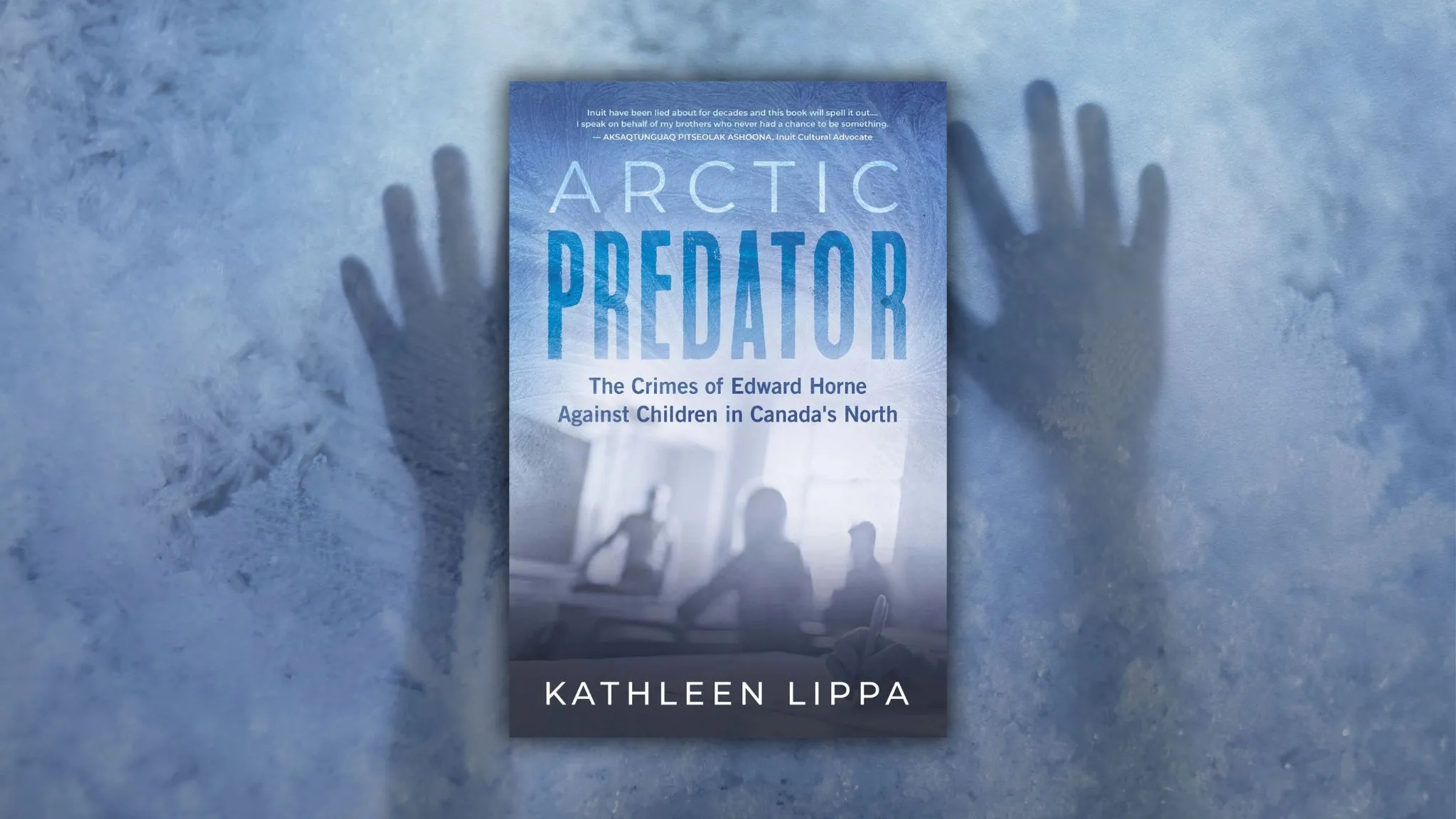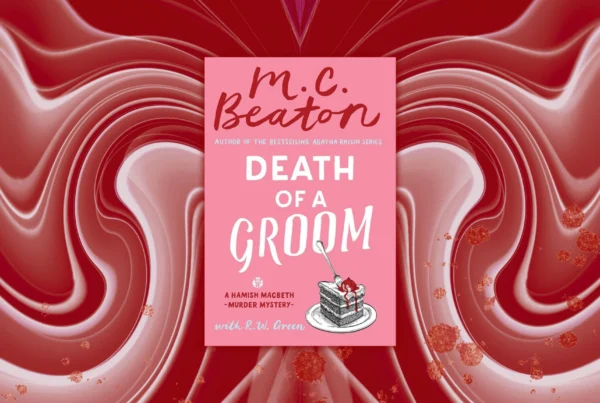Arctic Predator by Kathleen Lippa
True crime has become a hot topic for readers, podcast listeners and Netflix watchers in recent years. People are fascinated by terrible deeds and their perpetrators — but what of the victims who have suffered? Don’t their stories deserve to be told, with truth, honesty and integrity? Shouldn’t we listen to the real impact that crime has on communities, rather than sensationalizing the details? One author has done just that by telling a true crime story with care, caution and hopes of raising awareness.
Kathleen Lippa’s Arctic Predator: The Crimes of Edward Horne Against Children in Canada’s North explores the shocking crimes of trusted teacher Edward Horne, who wrought lasting damage on Inuit communities in Canada’s Arctic.
In the 1970s, this young schoolteacher from British Columbia charmed his way into the Northwest Territories education department and won hearts with his unique approach to teaching. Horne even proved his dedication to the community by learning to speak Inuktitut, the local language. In truth, Edward Horne was not Indigenous, as he claimed. Rather, he wormed his way into a trusting community and enacted unspeakable abuse on students — namely the sexual abuse of young boys — and their families, leaving trauma that would linger for generations.
Finally, with the careful research of Kathleen Lippa — who has lived among the affected communities and has seen the hurt firsthand — the unspeakable has been put out in the open. In Arctic Predator, Kathleen Lippa examines the devastating impact the crimes had on individuals, families, and entire communities. Her compelling work lifts the veil of silence surrounding the Horne story once and for all.
In a conversation with BookTrib, Lippa explores her reasons for exposing this crime, sharing details so brutal they can’t be sensationalized, and her hope for the future of the affected communities.
Why has there been such a veil of silence around the truth of Edward Horne’s crimes, and what inspired you to dive into this research project?
The media at the time fell down on the job and didn’t provide adequate coverage of Ed Horne’s crimes against Inuit boys in the North. That meant that when anyone, like me, started looking into the crimes, there was very little in the way of a historical record in the press about what happened. This concerned me and interested me as a person, and a journalist who knew some of Ed Horne’s victims – I was a newspaper journalist living and working in Nunavut at the time. I was very motivated to learn what actually happened.
The phenomenon of white people trying to pass themselves off as Indigenous is seen over and over again. What is the lasting impact of these kinds of lies, and what harm does it do to Indigenous communities?
Pretendians harm Indigenous people by taking up space and time that should be occupied by Indigenous people. In the world of academia, they receive grants and other financial incentives that are meant to be used by, and for the benefit of, indigenous people. The case of Ed Horne is interesting — there was no potential financial gain to his claims. However, he was using his claimed and false indigeneity to convince the courts to treat him more leniently than others would have been treated. In this, he was anticipating the GLADUE PRINCIPALS which had not even been articulated at that point.
Our society has become obsessed with true crime, and can’t seem to get enough. How did you find the balance between telling a gripping story people will want to read, without sensationalizing the violence and abuse?
The Ed Horne story contains violence and abuse to a degree such that it had no need to be sensationalized.
What was the research and interview process like for this book? Were there any particularly difficult moments?
The entire research and writing process was emotionally disturbing for me for sure. Learning that the court documents in Nunavut were sealed was disturbing, as was having to get a court order to have them unsealed. When told the records had been sealed to protect the victims, the further I got into the story the more I wondered if in actual fact they had been sealed to protect the government bureaucrats whose responsibility it had been at the time to adequately supervise teachers in the education department, and protect young children from abuse.
The subject matter is dark and heavy, but has there been a sense of relief or hope in finally bringing this story to light?
Yes. In the future people will look back on the Ed Horne years in the affected communities of the North and wonder what happened, what caused the unrest and unhappiness and social pathologies rampant in those communities in the years after Horne. Had I not written this book, there would be no answers to those questions. I viewed my task as providing those answers. So, yes, I felt relief when the writing was complete.
About Kathleen Lippa:
 Kathleen Lippa is a Canadian journalist, born in Toronto and raised in St. John’s, Newfoundland. Kathleen trained as a professional dancer at The Quinte Ballet School and The School of the Toronto Dance Theatre before embarking on a journalism career.
Kathleen Lippa is a Canadian journalist, born in Toronto and raised in St. John’s, Newfoundland. Kathleen trained as a professional dancer at The Quinte Ballet School and The School of the Toronto Dance Theatre before embarking on a journalism career.
At Memorial University, from which she graduated with a BA (English) in 1998, she worked on the student newspaper, the muse. Following graduation, she worked at a number of Canadian newspapers including The Express (St. John’s) where she won a Canadian Community Newspaper Association award for arts reporting, The Hanover Post (Ontario), a number of newspapers under the corporate umbrella of the Northern News Services, 24 Hours (Toronto), and the Calgary Sun. For Northern News Services, after a short stint in Yellowknife, Kathleen served as Bureau Chief in Iqaluit, Nunavut.
Her experience includes writing, editing, page layout and design, and photography. Her Northern experience was in a cross-cultural setting primarily reporting news from Inuit communities. After spending many years in Iqaluit, Kathleen now lives with her husband in Ottawa and St. John’s.





